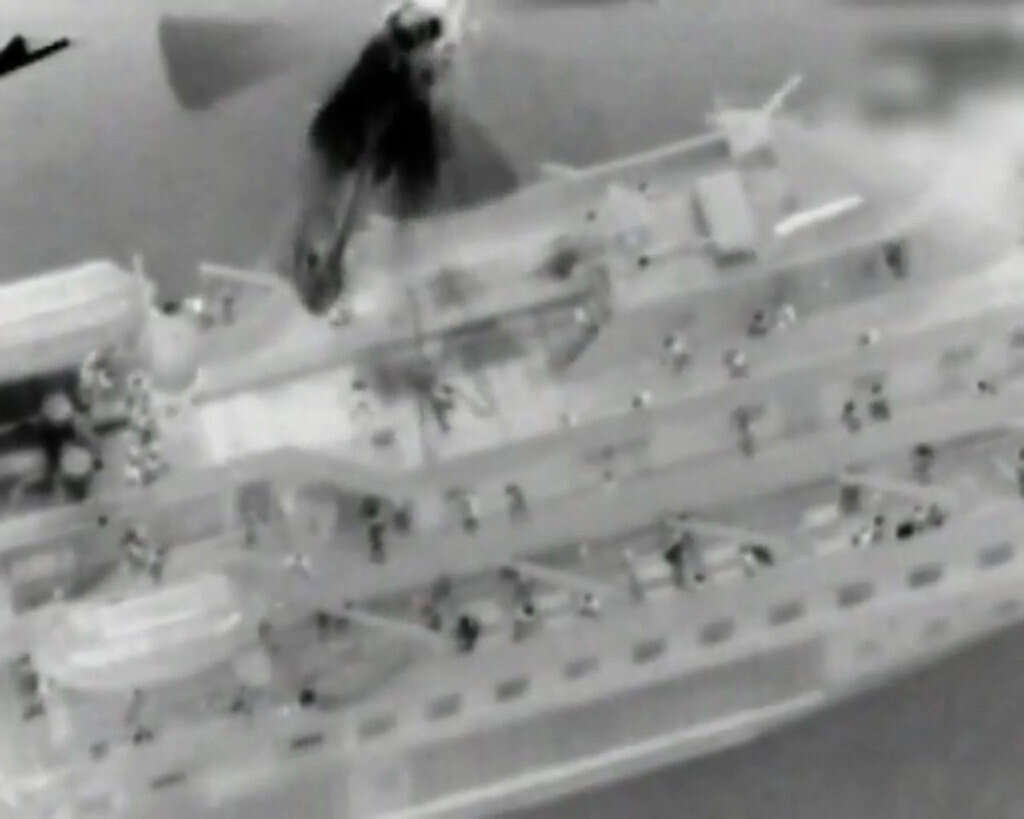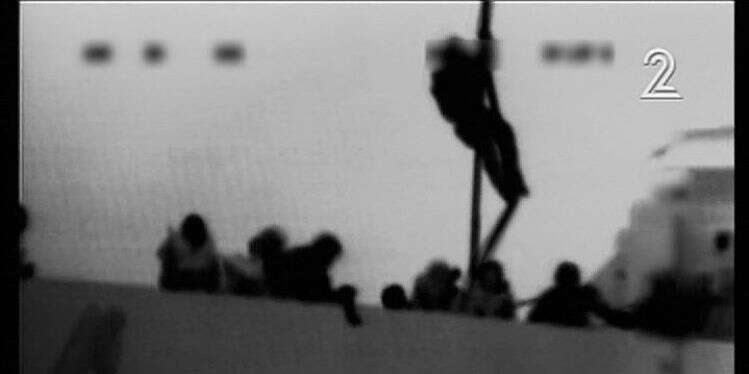Ten years after the 2010 raid on a ship trying to breach the maritime blockade on Gaza Strip, troops involved in the mission that ended with 10 dead passengers and several Israeli soldiers seriously wounded, and which all but sunk the once-close Israel-Turkey relations, insist the operation was not a failure.
The now infamous flotilla incident took place on May 31, 2010, when the Mavi Marmara, a Turkish vessel, attempted to breach the maritime blockade Israeli had imposed on the Gaza Strip three years prior, after the Hamas terrorist ousted rival Palestinian Authority President Mahmoud Abbas' Fatah movement from the coastal enclave in a military coup.
Follow Israel Hayom on Facebook and Twitter
Upon approaching Gaza's waters, the Israeli Navy hailed the Marmara several times, advising it was about to breach the blockade and ordering it to stop and turn around. The Marmara refused, leaving Israeli commandos little choice but to board the ship.
The operation was met with violence by the passengers, which clashed with the Israeli troops. Ten Turkish nationals were killed and several Israeli soldiers were seriously wounded.
Footage of the raid, especially of Israeli soldiers being assaulted and thrown overboard by the passengers, dominated the international news cycle for weeks. The incident caused a rift between Israel and Turkey, and the once warm diplomatic relations between Jerusalem and Ankara have become chilly, at best, despite Israel's $20 million reparations to the victims' families.
The experience has been etched into the memory of the Shayetet 13 Naval Special Forces Unit that led the mission.
"It wasn't the first flotilla we were required to stop, nor was it the last," one former commando told Israel Hayom.
"The unusual factor here was the number of passengers on board and the fact that we didn't know that there were about 60 IHH terrorists among them."
The Turkey-based IHH Humanitarian Relief Foundation, which organized the flotilla led by the Mavi Marmara, is designated as a terrorist group by Israel, Germany and the Netherlands.
"In the flotillas that preceded the Marmara we encountered peace activists – not terrorists who were paid to kill Israeli soldiers," he said."
Many of the commandos involved in the raid attributed its dire results to lacking intelligence. The IDF apparently had no knowledge that IHH operatives were on board so the operational procedure set for the Marmara raid was somewhat similar to those that preceded it.
"We discussed extreme-case scenarios," said Sgt. Maj.(res.) N. "The media reported that all we were paint rounds but that's not true. We were armed and had protective vests on."
N. was part of the first crew to rappel down from a helicopter to the Marmara.
"We hovered over it at 4:30 a.m. and dropped one line. Three people [below] immediately jumped on it and tied it to the boat, which jeopardies those aboard the helicopter.
"We adjusted the rappelling plan and through a few flash grenades onto the deck. Those made a loud notice and produce a bright flash of light but they're otherwise harmless. We dropped a second line and within one minute all 15 of us were on deck," he recalled.
His feet barely touched the deck before three men jumped him.

"I took a blow to the head from a crowbar and my helmet flew off. They came at me with axes, crowbars and hammers. The first thing that went through my head was, 'What's going on here?' We never encountered such violence, it was off the charts.
"When the third crowbars hit me in the head it finally dawned on me – they were actually trying to kill me. So I grabbed my weapon and shot one of the terrorists."
N., who was also the team paramedic, then grabbed his medical kit and started tending other wounded soldiers and passengers. "The teams on the second helicopter already knew what they were flying into, that we had to resort to using live fire. They were prepared," he said.
N., other naval paramedics and later Israeli medical teams eventually treated 55 Turkish passengers. "No effort was spared. They received the best medical care we could offer," he stressed.
"The media coverage was crazy, but the commanders did a good job," he noted. "I didn't feel a sense of failure, but I suppose those who were injured didn't feel a sense of victory – at the end of the day, you walk into a situation perfectly health and come out seriously injured. But as a unit, our mission was successful.
"This was by far the most high-profile event of my military service, but it wasn't necessarily the 'craziest' mission I was part of," he said.
He does, however, admit that the Marmara raid was a formative event. "It's the type of event that puts everything else in perspective."




